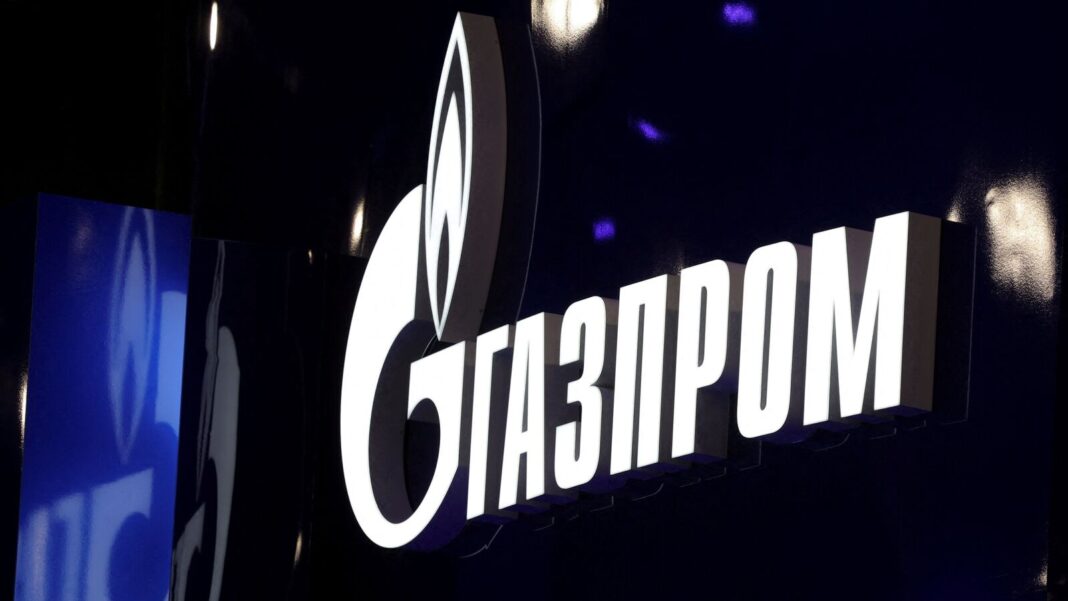In Short:
Russia faces challenges in redirecting its gas exports, especially after losing its major European market. While it aims to boost sales to China via pipelines, negotiations are stalled, and China seeks diverse sources. Additionally, Russia’s LNG production could fall short due to sanctions and lack of investment. Overall, Russia’s energy revenue may not recover significantly, impacting its economic future.
The Challenges of Russia’s Gas Exports
When it comes to natural gas, **Russia** faces a monumental challenge in redirecting the staggering **180 billion cubic meters (bcm)** of gas—amounting to **80%** of its total gas exports in 2021—that was once sent to **Europe**. The country lacks a counterpart to the **Nord Stream**, a crucial pipeline that facilitated gas flow to **Germany**. Furthermore, without the facilities to cool gas to a chilling **-160°C** or the specialized tankers required for **Liquefied Natural Gas (LNG)** transport, Russia’s situation is far from ideal. Until now, this issue was somewhat manageable; from 2018 to 2023, gas contributed to just **20%** of Russia’s hydrocarbon export revenues. Despite facing sanctions, the nation continued to profit handsomely from oil sales.
However, as the conflict persists, the **Kremlin** finds itself in dire need of funding to sustain its military operations. **High oil prices** are unlikely to hold indefinitely. With global production capacity outpacing demand, it’s only through output reductions by **Gulf producers**—including Russia itself—that markets remain stable. Additionally, financial and equipment shortages are slowing down Russia’s efforts to tap into new gas fields. International forecasts suggest that global demand for oil may decline in the coming years, especially with the accelerating shift toward greener energy sources. In sharp contrast, many analysts predict that demand for gas, a cleaner alternative, will keep growing.
The Quest for New Markets
For **Russia**, revitalizing gas exports has become increasingly vital. Unfortunately, outputs to **Europe**—which accounted for half of the **140 bcm** exported last year—are expected to decline again this year. Theoretically, Russia now faces two potential pathways: constructing new pipelines to alternative markets or ramping up its LNG exports.
Siberian Express
On the pipeline front, Russia is leveraging the **Power of Siberia**, which connects eastern gas fields to **China**, sidestepping the European market completely. By **2025**, shipments could soar to **38 bcm**, a marked increase from just **10 bcm** in 2020. A proposed extension might even boost capacity by an additional **10 bcm per year** by **2029**. The real game-changer, however, would be the **Power of Siberia 2**, a suggested pipeline stretching from western Russia to **China**, targetting **50 bcm annually** by 2029. By then, China’s gas demand is expected to reach **600 bcm**, up from **390 bcm** last year, with Russia aspiring to supply a substantial **one-sixth** of that amount.
The hitch? **China** is hesitant about the Power of Siberia 2. Focused on energy security, Chinese leaders are wary of depending on a single fuel source. Negotiations with Russia have stalled, plagued by disputes over pivotal contract details such as financing and gas pricing.
Even if the pipeline materializes, Russia might be looking at a less-than-favorable deal. **China** has other gas suppliers, particularly from **Central Asia**, which could undermine Gazprom’s position, leaving the Russian energy giant dependent on a solitary buyer. Former oil executive **Sergey Vakulenko** warns that China might simply wait until new LNG supplies from **America** and **Qatar** flood the market in **2025-26**, before enforcing unfavorable terms. In fact, Russia’s ministry of economy already anticipates gas prices for China falling to **$228** per thousand cubic meters by **2027**, starkly contrasting with the **$315** for its remaining European clients.
This project carries its own risks as well. To recoup its investment, **Gazprom** would need to operate at full capacity for a minimum of **20 years**. That’s theoretically achievable; as China moves towards decarbonization, it may gradually cut back on coal while still increasing gas usage. However, a robust economic rebound could lead to an accelerated expansion of clean energy resources, possibly speeding up its transition away from gas. Alternatively, economic downturns could see a shift back to coal.
Expanding LNG Production
The second option for Russia—boosting LNG production—appears to be a more secure path. LNG offers flexibility since it can be shipped globally. Surprisingly, Russia’s costs for liquefying gas at its terminals are competitive, coming in lower than all exporters except **Qatar**. The nation aims to elevate its LNG exports to **100 million tonnes** by **2030**, roughly **138 bcm** from the **31 million tonnes** exported last year. The Kremlin projects its market share could increase from **8%** to **20%** by **2030**.
Yet, this goal may be overly ambitious. Constructing new LNG facilities and transport systems relies on Western technologies now restricted due to sanctions. Japanese investors have withdrawn from the **Arctic LNG 2** project, and their Chinese counterparts are seeking U.S. sanction waivers that seem unlikely to be approved. To cover the shortfall, Russia is heavily supporting **Novatek**, the nation’s leading LNG firm, while simultaneously developing domestic technology.
Building a self-sufficient gas industry won’t happen overnight. **Arctic LNG 2**, which was supposed to start delivering by early **2024**, has saw its production temporarily halted. According to **Rystad Energy**, Russia’s LNG output might only hit **40 million tonnes** by **2035**—a staggering **100 million short** of the Kremlin’s projections. Finding buyers for this gas is going to be a challenge. **Anne-Sophie Corbeau** from **Columbia University** believes that Russia will ultimately have to target poorer nations, offering lucrative contracts to entice them.
All these obstacles mean that Russia is unlikely to recover the significant revenues it once enjoyed from **European** gas exports. As the world transitions to cleaner energy, the possibility of a golden age of gas may only last a couple of decades, at best. While Western sanctions and tactical missteps by Russia may not be stopping the conflict in **Ukraine**, they are certainly jeopardizing Russia’s future as a key player in the global energy market.





